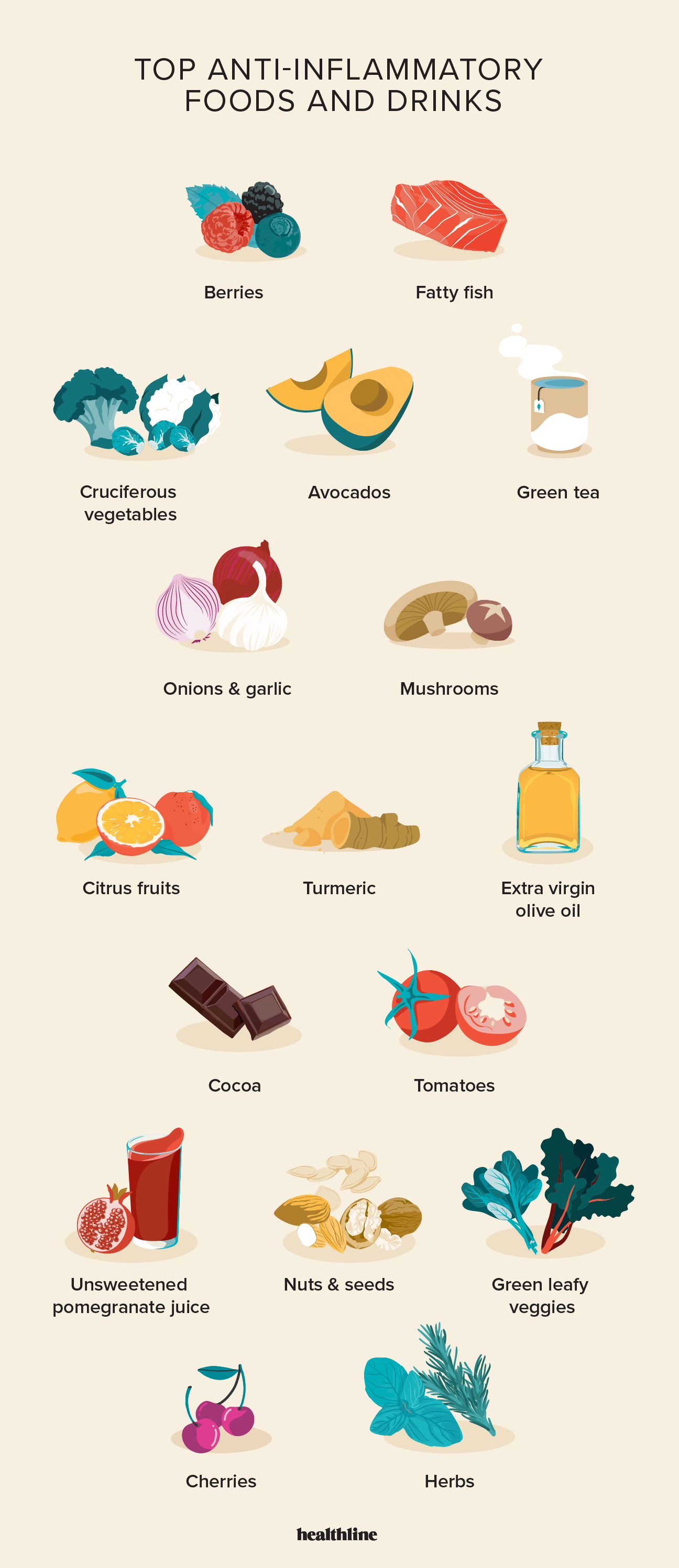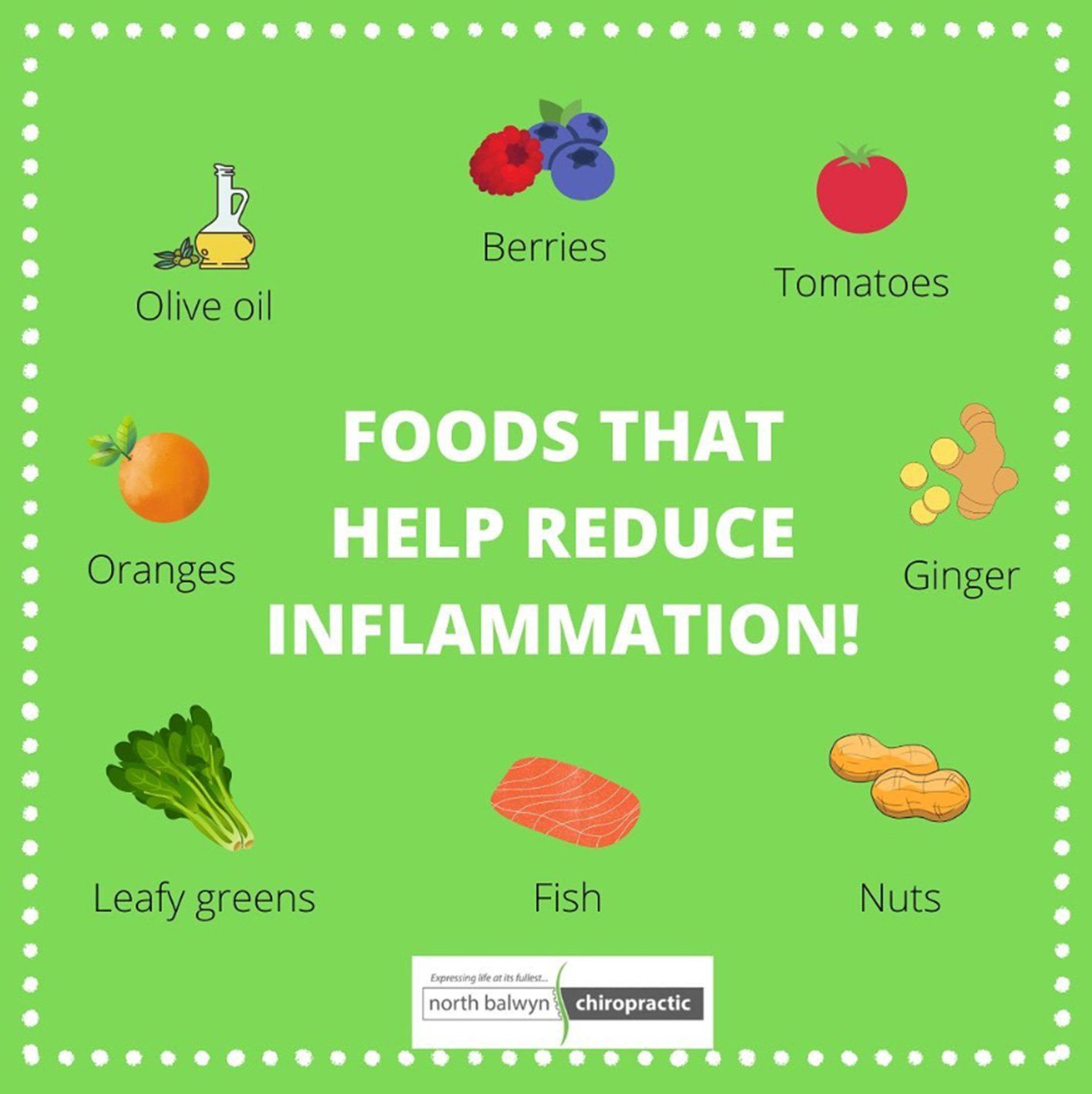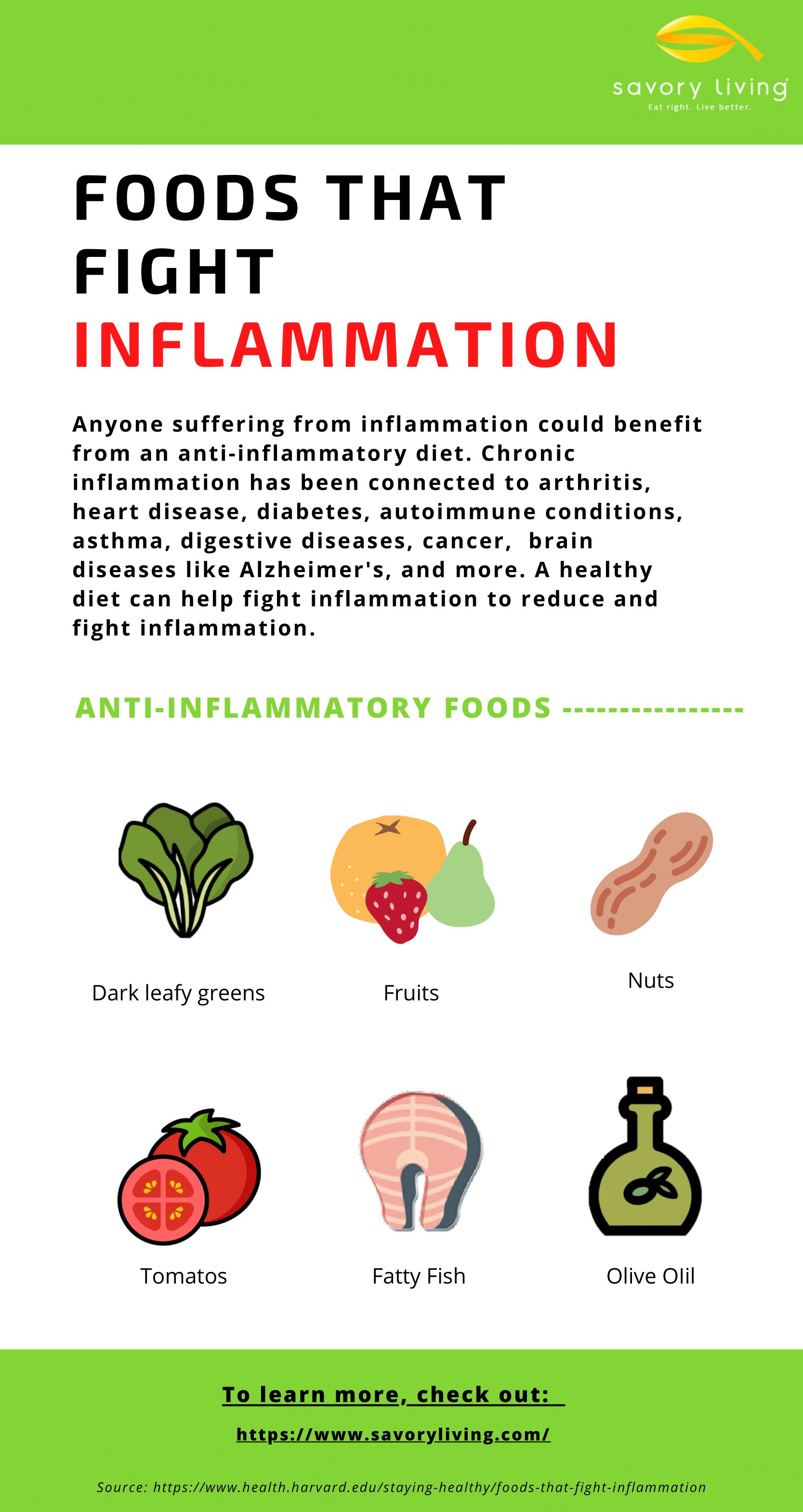Foods That Reduce Inflammation: Add These Healthy Staples To Your Diet
Inflammation is a natural response of the body's immune system, but chronic inflammation can lead to a wide range of health problems, from arthritis and diabetes to heart disease and even certain types of cancer. The good news is that there are many foods that can help reduce inflammation in the body. By incorporating these healthy staples into your diet, you can take a proactive approach to managing inflammation and promoting overall health.
A diet rich in anti-inflammatory foods can help to reduce symptoms of chronic inflammation, including pain, fatigue, and joint stiffness. It can also help to prevent conditions such as heart disease, diabetes, and certain types of cancer. Furthermore, a diet high in anti-inflammatory foods has been shown to improve mental health and reduce the risk of depression and anxiety.
When it comes to reducing inflammation, it's not just about avoiding inflammatory foods, but also about incorporating foods that have anti-inflammatory properties. These foods can help to reduce inflammation in the body, alleviate symptoms, and even prevent chronic diseases.
The Role of Omega-3 Fatty Acids
Omega-3 fatty acids, particularly EPA and DHA, have been shown to have potent anti-inflammatory effects. These fatty acids can help to reduce inflammation in the body by inhibiting the production of pro-inflammatory cytokines and promoting the production of anti-inflammatory cytokines.
Fatty fish such as salmon, sardines, and mackerel are rich in omega-3 fatty acids, making them a great addition to a diet aimed at reducing inflammation. You can also find omega-3 fatty acids in flaxseeds, chia seeds, and walnuts.
Turmeric: The Curcumin Connection
Turmeric, a spice commonly used in Indian and Middle Eastern cooking, contains a powerful anti-inflammatory compound called curcumin. Curcumin has been shown to have potent anti-inflammatory effects, reducing inflammation in the body and alleviating symptoms of chronic diseases.
To reap the benefits of curcumin, consume turmeric in a form that contains bioavailable curcuminoids. This can be achieved by taking a supplement or adding turmeric to your meals in the form of a paste or powder.

Ginger: A Natural Anti-Inflammatory
Ginger has been used for centuries in traditional medicine to reduce inflammation and alleviate symptoms of chronic diseases. The active compound in ginger, gingerol, has anti-inflammatory properties that can help to reduce inflammation in the body.
Ginger can be consumed in a variety of forms, including fresh ginger, ginger tea, and ginger supplements. It can also be added to meals in the form of a paste or powder.
Leafy Greens: A Rich Source of Anti-Inflammatory Compounds
Leafy greens such as spinach, kale, and collard greens are rich in anti-inflammatory compounds, including vitamins A, C, and E, as well as minerals like calcium and iron. These compounds can help to reduce inflammation in the body and promote overall health.
When consuming leafy greens, be sure to cook them gently to preserve their nutrient content. Leafy greens can also be added to smoothies, salads, and other meals to increase their anti-inflammatory effects.
Berries: A Rich Source of Antioxidants
Berries, such as blueberries, raspberries, and strawberries, are rich in antioxidants, which can help to reduce inflammation in the body. Antioxidants can neutralize free radicals, which can damage cells and promote inflammation.
Berries can be consumed fresh or frozen, and they can also be added to smoothies, oatmeal, and other meals to increase their anti-inflammatory effects.
Whole Grains: A Rich Source of Fiber and Anti-Inflammatory Compounds
Whole grains, such as brown rice, quinoa, and whole wheat, are rich in fiber and anti-inflammatory compounds. Fiber can help to reduce inflammation in the body by promoting the growth of beneficial gut bacteria.
When consuming whole grains, be sure to choose whole, unprocessed grains to reap the benefits of their anti-inflammatory compounds.

Healthy Fats: A Key Component of an Anti-Inflammatory Diet
Healthy fats, such as olive oil, avocado, and nuts, are essential components of an anti-inflammatory diet. These fats can help to reduce inflammation in the body by inhibiting the production of pro-inflammatory cytokines and promoting the production of anti-inflammatory cytokines.
When consuming healthy fats, be sure to choose high-quality sources, such as cold-pressed olive oil and wild-caught nuts.
Fatty Fruits: A Rich Source of Antioxidants
Fatty fruits, such as avocados and olives, are rich in antioxidants, which can help to reduce inflammation in the body. Antioxidants can neutralize free radicals, which can damage cells and promote inflammation.
When consuming fatty fruits, be sure to choose high-quality sources, such as cold-pressed olive oil and wild-caught olives.
Herbs and Spices: A Natural Anti-Inflammatory
Herbs and spices, such as cayenne pepper, turmeric, and ginger, have anti-inflammatory properties that can help to reduce inflammation in the body. These compounds can be added to meals in a variety of forms, including powders, capsules, and supplements.
When consuming herbs and spices, be sure to choose high-quality sources and use them in moderation to reap the benefits of their anti-inflammatory compounds.
Conclusion
Incorporating anti-inflammatory foods into your diet can help to reduce inflammation in the body and promote overall health. By making a few simple changes to your diet, you can take a proactive approach to managing inflammation and reducing the risk of chronic diseases.
Dave Blunts Weight And Height
Vicky Jain Net Worth In Million
Gene Wilder Grandson
Article Recommendations
- Chudney Ross
- Aishahofeyd Fans
- Lee Asher Wife
- Whoid Lukebs Vote For
- Gabriel Macht Height
- When Will Tapswap Be Launched
- Secrests Royal Beach
- Marge Cooney And Philone
- Benson Boone Wife
- Amelia Heinle

